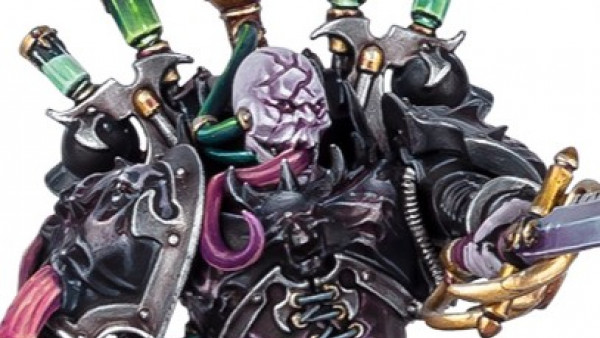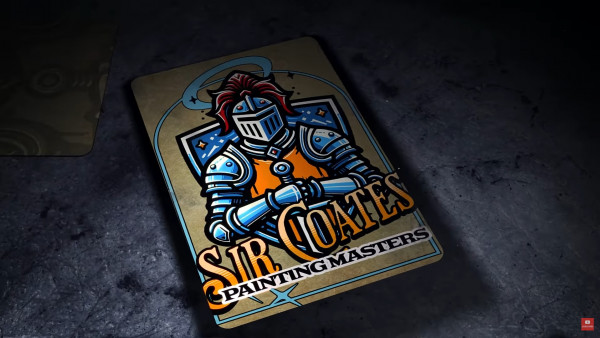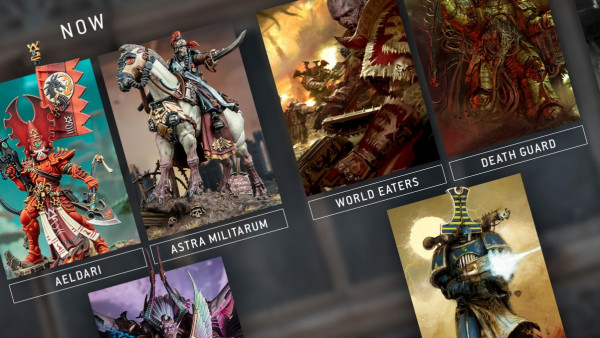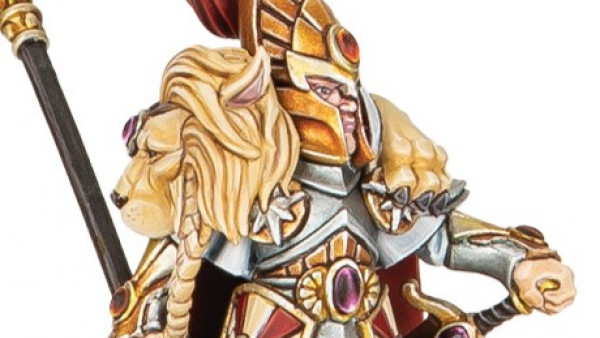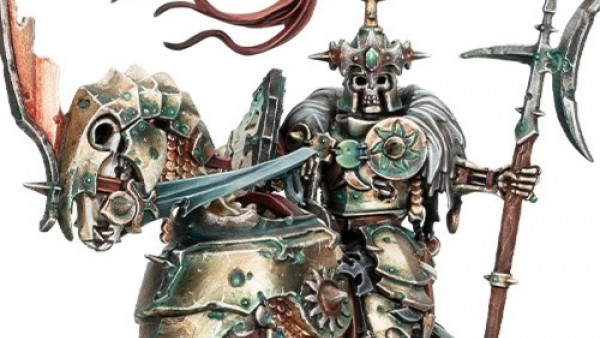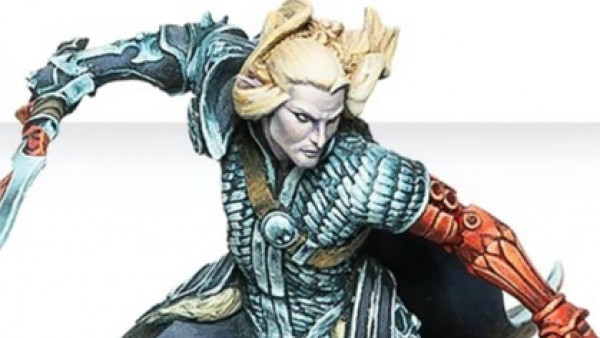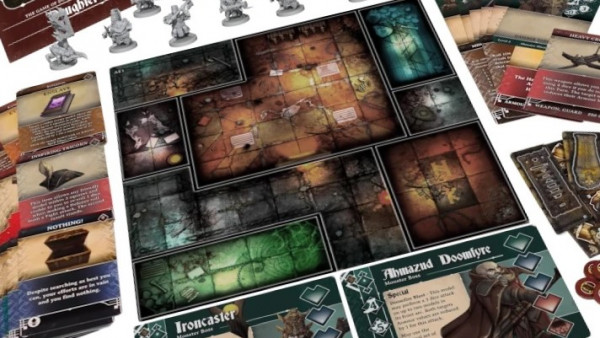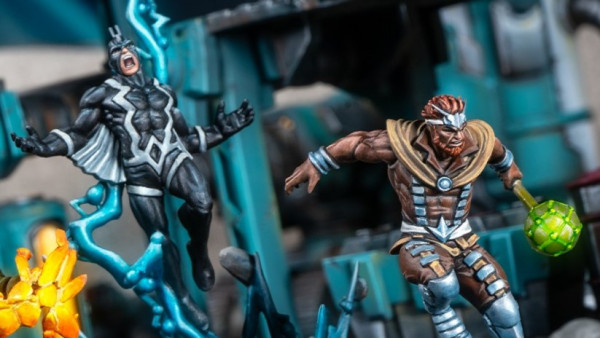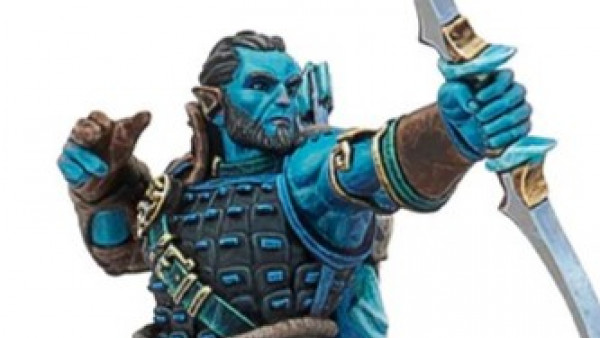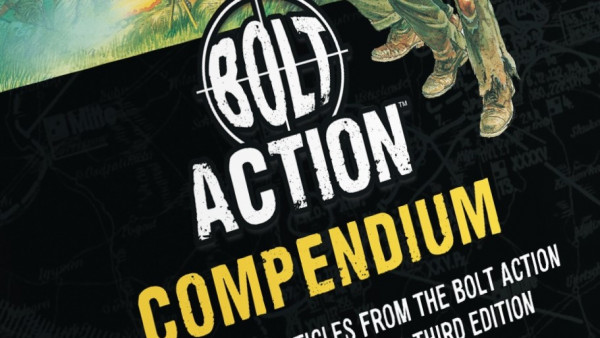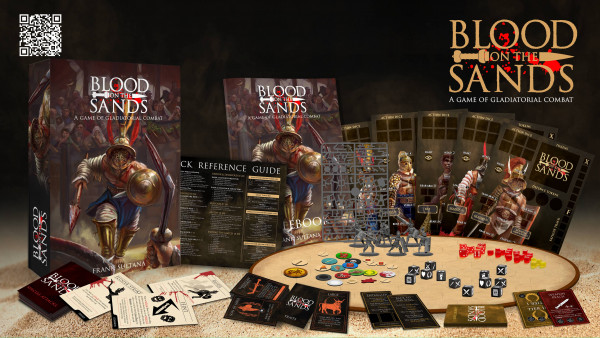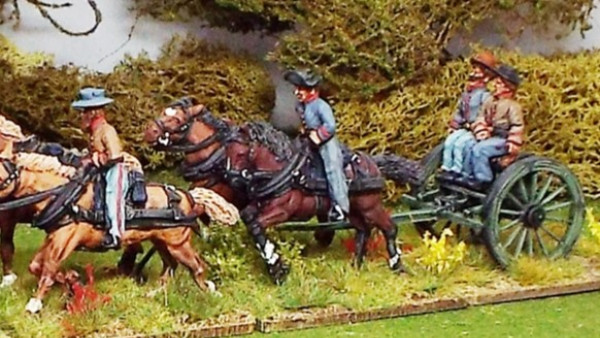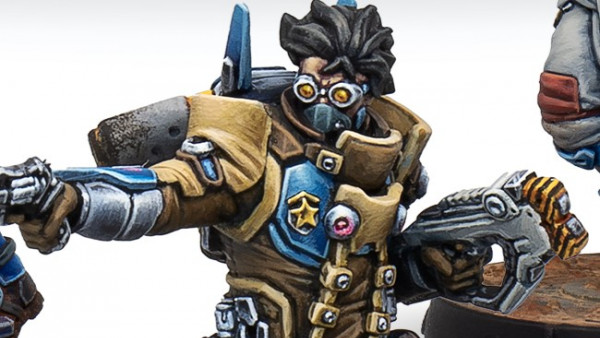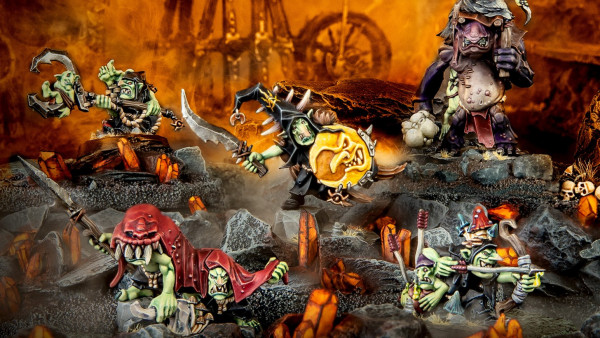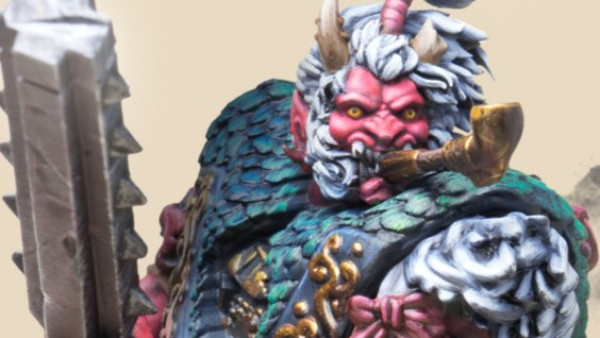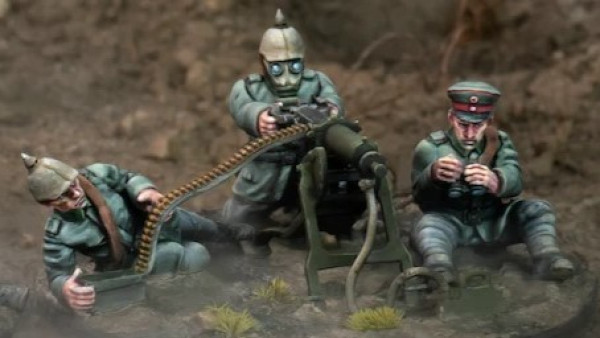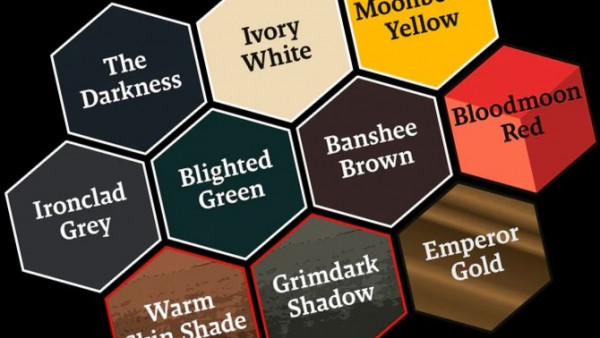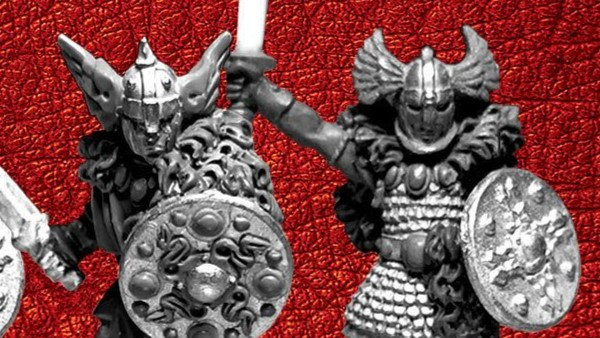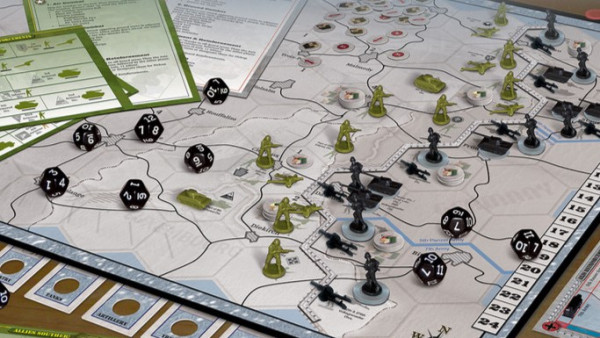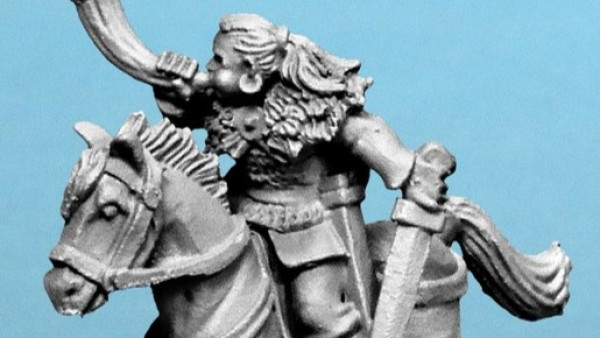Home › Forums › News, Rumours & General Discussion › D&D officially turning Forgotten Realms sights away from Euro inspired campaigns
Related Games:
This topic contains 69 replies, has 10 voices, and was last updated by ![]() greyhunter88 6 years ago.
greyhunter88 6 years ago.
-
AuthorPosts
-
January 8, 2019 at 10:38 pm #1325944
@onlyonepinman Yeah, back then TSR did have so many settings for ADnD so not all them could survive after WotC got they hands on those. So it was to be expected. Some of those were actually interesting settings so I am happy that from those they have least brought back Ravenloft. I also have some nostalgia when it comes to Dragon Lance since back in day I read all novels based on that that I got my hands on so I wouldn’t mind getting chance to roleplay in it.
January 8, 2019 at 11:29 pm #1326013When you look at it, I can see why they got rid of Dragonlance and why Greyhawk sort of Faded away (it was officially the “default” setting for d&d 3 but it didn’t get anything like the level of support that Forgotten Realms got. Only one of those three settings was ever going to survive because they were all too similar and by having all 3 it’s easy to see why people might use terms like “generic” to describe medieval fantasy; three settings that were almost the same apart from the map and the names of the Gods. So Forgotten Realms, as the most popular, lived on. But in the wake of the cull, we also got Eberron.
January 9, 2019 at 12:42 am #1326076I’ve been very reassured by a lot of what I’ve read here. Onlyonepinman’s paragraph about “Medieval Fantasy” being generic only because it’s what we are used to was wonderfully expressed, in particular.
I’ve seen the culture war impact role-playing first-hand, unfortunately. There was a stint in time where work and distance broke my group up, and we looked locally for new players and groups in the interim. We met up with the largest “public” role-playing group in town, and… it was problematic.
My girlfriend was vehemently rebuked for playing a “sexualized” character, because it was somehow wrong for a young woman to want to play a make-believe elf who was beautiful and not afraid of her own sexuality.
My friend was scolded for playing a white European knight, because as an Asian, he should play something diverse, like a ninja or a samurai. He explained that we had just finished a 3 year campaign of Dark Heresy where he had played an Asian ninja assassin, but… apparently he was not allowed to play a white man. Somehow his make-believe character had to look the same as him… which kind of defeats the purpose of make-believe, no?
The issue with identity politics in role-playing is that it kills the heart and soul of the hobby as a whole. The second we start dividing people by what they are or aren’t allowed to pretend to be, the escapism is gone.
The idea that role-playing is currently ‘region locked’, or that it’s difficult to play in ‘diverse’ settings is silly.
My group has male, female, and non-binary players, and White, Asian, Middle Eastern and Black players. We’re pretty diverse, I’d say. In the past 8 years of gaming we have played big campaigns of Dark Heresy and Rogue Trader, where the players all played various characters of racially unimportant cyborgs and 40k-ites.
We played L5R, where everyone was Asian.
A huge Pathfinder campaign set in Ancient Egypt, where everyone was African.
We’re looking forward to playing Nahual, where we’ll all be Mexican.
In fact, our current game of Warhammer Fantasy is the only time we’ve played white Europeans in years, and it’s been a blast. Because it’s fun to play different characters in different settings!!!There’s nothing inherently wrong with bringing in new settings and the like, but I agree with the views expressed here that intent is key. I love new and interesting worlds and fantasies, but if they’re brought about as some kind of virtue-signalling maneuver, they lack integrity.
It’s noticeable that the only white male in the Player’s Handbook is the Barbarian. It’s noticeable that in the 4th edition of Warhammer Fantasy the picture for “Townsperson” is an Asian woman, and it’s noticeable that the playtest rulebook for Pathfinder dedicated more pages to explaining privilege and social justice than it did to fleshing out huge portions of the rules.
Has this “ruined” the hobby? No. Of course not. It’s noticeable, though, and pretending that it could never get to the point where it might become exclusive rather than inclusive, seems short-sighted. Of course it’s anecdotal, but the Asians in my group laughed at the Asian Townswoman in Warhammer, because Fraulein Chow doesn’t fit into the setting very well, and they said that it was obvious they’re being pandered to.
To be honest, I actually find the cosmopolitan setting of modern D&D generic by pure dint of its sheer lack of tone. To take Critical Role as an example, the party is made up of a blue demon person, a half-orc demigod, a trans-goblin, a firbolg with a pink lady gaga hairdo, and the like. They go into towns that are full of genie crime lords, bag pipe playing turtles, and gnomes who seemingly never sleep.
I find it very hard to get excited about some new special snowflake when literally everyone walking down the streets is some kind of special half-wizard celestial dragon monk.Meanwhile, the setting of the Witcher, while European Medieval, is 10x less generic, for the simple fact that it is coherent, lived-in, and feels like it could actually exist.
January 9, 2019 at 7:04 am #1326258I don’t think you needed to qualify the problem with identity politics in Role-playing. It’s basically everything it touches; film, TV, games, comedy…
January 9, 2019 at 8:19 am #1326279In Critical Role they play characters that they want to play. Should they be told not to because some one might not like what some one else has chosen to play as? Of course not. That’s beauty of PnP RPGs that each player’s PC can be what ever that player wants as long as rules allow it. After all those are all about playing role and not pleasing other people. Some times PC is totally opposite to player like case with my first DnD character who was nationalistic half-elf paladin.
January 9, 2019 at 8:35 am #1326288@greyhunter88 you make quite a good point about Forgotten Realms feeling generic (although the word I would use is bland) because of its diversity. There is almost a monoculture across the entire setting and with so many varied species nothing is ever unique or interesting. The thing that usually makes a setting interesting is culture clashes, and Forgotten Realms lacks that in any meaningful; without those cultural differences the settings feel a little less believable. D&D tends to replace cultural diversity with racial, or rather specieal, diversity. However all of those species, for the most part, live together quite harmoniously and while it is true that states or city states occasionally go to war the motives usually feel contrived, like they were written into the game for the sake of having them rather than any real reason. Expansionist states are always seen as the bad guys, usually being resisted by an alliance of smaller, cities or states, the good guys usually described as “free”. The political aspects of Forgotten Realms are quite bland. But as boring as that can be, it’s really easy to get into that setting and it allows a for pretty much any character type you can thing of. I would definitely expect this to be a continuing trend in any additional parts of the setting regardless of its real world cultural inspiration.
As you can probably tell, it’s not really my preference. I am happier in games where there are restrictions and the choices you make when building your character can have consequences in the game world beyond the abilities available to you – D&D doesn’t really have that built into any of the settings as far as I am aware (although I don’t claim to be an expert on all of them).
January 9, 2019 at 8:42 am #1326291@mecha82 I don’t think @greyhunter88 was suggesting that the players in critical role should not be allowed to play the characters that they want, only that when everything is unique and weird nothing is unique and weird; it’s impossible for something to be extraordinary when there is no ordinary. I think the criticism was more about the setting than the players’ choices – those choices are a reflection of the world they’re playing in
January 9, 2019 at 3:45 pm #1326634Yea… I went on a bit of a rant, so I could see how my point could get misconstrued. OnePinMan is right, though. I have absolutely zero qualms with anyone playing whatever they want to play. I think that a group or a GM has an equal right to insist on only allowing certain types of characters into their games, but generally I’m of the belief that there’s a group and a game out there for everyone.
Though as mentioned earlier, if everyone is special, nobody is special. In Critical Role, for example, the plot point that Nott is a goblin disguised as a halfling lasted about one episode. At this point she just openly walks around in her goblin form, and people crack jokes about it. She hasn’t faced a single moment of prejudice, there have been no prospective pogroms, and if her Charisma was +4 instead of -3, everyone would acquiesce to her every whim.
Warhammer Fantasy is pretty “generic” Fantasy, but believe me, if you play an Elf in that setting, you FEEL it. The awe, the prejudice, the hatred, etc. Play an Elf Mage? Even more so.
That’s because the rest of your group, and in fact the world, are mostly comprised of human peasants, boatmen, innkeepers, etc. Even if you want to have an entire party of special snowflakes, you stand out from all of the NPCs.My main fear is thus. Something like the Forgotten Realms is generic, because it needs to be. It allows any kind of character, and any kind of campaign. It’s the ‘default’ setting. If, in an attempt to be inclusive, they diversify the basic setting to the point where sourcebooks and new worlds cease to have any individual flavour, I think it’s detrimental for everyone.
I had this issue with the inclusion of the Monk in 3rd edition D&D. On a personal level, I always found it tonally jarring to have some dude in silk pants going around tanking hits and slaying dragons with his fists, alongside a guy covered in magical armour and wielding excalibur. In L5R, the same character and class fits in a lot better, because it is more sensical within the setting, and more integrated into the lore.
If they heavily integrate all of these new worlds and locations into the default setting, people are going to start demanding to use options from them in any game, for mechanical benefits or otherwise. If this leads to the standard D&D group being a medieval knight, Merlin, a Native American shaman, an Arabic genie caller, and an Egyptian mummy… that’s not going to feel diverse, it’s just going to feel boring.
January 9, 2019 at 3:52 pm #1326639That group that you refer to with the medieval knight, Merlin, a Native American shaman, an Arabic genie caller, and an Egyptian mummy can already exist in Forgotten Realms. With the possible exception of the Mummy. I don’t think the new source books are going to make that sort group more or less likely. I’m also unconvinced there’s such a thing as “the standard party” as the characters within any given party will depend on the group playing them and the agreements they make among themselves, or not, as to what sort of group they want. And as GM you have the final say on what source books you will or will not allow in your game; if you feel characters from certain source books will ruin or unbalance your game you just say no. It’s their story but it’s your world.
January 9, 2019 at 4:06 pm #1326651To be fair mummies and other undead tend to be enemies rather than option to be PCs so I would never think them to become option in any setting outside WoD. As we talked about races that players can choose I must mention that I do think that WotC missed opportunity to test bigger PCs with Loxodon race in Ravnica setting and it would had been interesting thing to do.
January 9, 2019 at 7:25 pm #1326839The silent majority might just be all the people reading this thread who have no issues whatsoever with their hobbies and interests becoming more inclusive, and more representative of (and sensitive to) cultural diversity.
A lot of them probably share my frustration every time a space they go to online to hang out and talk about games, and get away from all this crap is filled up with raging ideologues, acting as though the sky is falling because Thor is a girl, or games workshop didn’t make sisters of battle sexy enough, creating straw-man positions to argue against, whilst claiming they represent the views of everyone who doesn’t join in, and dismissing anyone who doesn’t share their view off-hand with ad-hominem and pejoratives as “SJW”, “Snowflakes”.
These people rail against a perceived culture of outrage, but in reality, most of the outrage I see comes from them.
This thread is supposedly about D&Ds Forgotten Realms releasing material which focuses on regions and cultures beyond Faerun, so why are there three pages of off-topic opinion about a supposed “culture war”, identity politics, “outrage”, and “SJWs”? Can’t you please just keep that crap out of this community, and recognise that you aren’t responsible for policing this hobby, and speaking for it’s participants?
At the very least, I felt the need to say this so that you can’t claim to be speaking for me.
January 9, 2019 at 9:14 pm #1327044@tachycardia As some one who shares your frustration I totally agree. I have always tried to talk sense to those people without any effect because they don’t want to listen and they don’t seem to realize that they are also source of problem. So I am sorry that it has been partially my fault that there has been so much talk about that in this thread. It’s why I have been trying to bring conversation out off it.
January 9, 2019 at 10:53 pm #1327128Shrug…
Maybe be a bit more reflective? It’s a bit silly to come in dismissing contrary opinions as “vitriolic rants”, calling out specific posters yet accusing others of making ad-hominems, and naming others raging ideologues (a bit dramatic, honestly) while you sweep in purporting to represent the silent and beneficent masses who accept the Dogmatic Good.
I posted on here with two main concerns, which I feel are pretty on-topic.
1) My friends (one of them non-white and one of them non-male) were told, by people whose language and tone very much conjured your own, that they were not allowed to play the characters they wanted to play because it was not “sensitive to cultural diversity”.
I find that concerning, and it’s not something I would like to see pervade any more of the hobby. So when I see an article touting a new product’s “diversity”, rather than its quality, I fret. You might not think my personal musings, because they might contradict your own, are worthy of being posted on this forum. Given your distaste for others “policing” the hobby, though, I would assume you’d agree with me on this point. Surely you could never tell another that they “can’t play” a certain character, right? So maybe you failed to empathize with my personal experience, outlier though it may be, and instead chose to focus on what you wanted my argument to be.2) Directly to the point of these new WoTC settings, I posit that if they become part of the generic setting, rather than part of specialized expansions, they will actually lose the elements that make them unique. I love diverse settings. I love playing in unique settings, whether that be culturally, historically, or even thematically unique.
If D&D made a new module/setting, similar to Oriental Adventures, that was self-contained, that would be awesome.
If they add a source book talking about the land of “Not-Japan” in the Forgotten Realms, however, that becomes ‘standard’. If there is a Samurai class in there that’s better at stacking AC or damage than a Paladin or a Fighter, say goodbye to those other classes. At the very least in any kind of pick-up or organized play. The samurai will lose its cultural, philosophical or aesthetic raison-d’etre, and just become a renamed “fighting class”, like what is happening to Paladins in Pathfinder 2E. I think this is a shame, because a samurai is so much more than a re-skinned fighter, and that will become lost if their inclusion isn’t genuine.Look at the Tiefling. Back in earlier editions, playing a tiefling was special. You had to go out of your way to do it, because it wasn’t really ‘standard’. Now, I’m more surprised when someone doesn’t play a tiefling than the other way around. The net result is that the tiefling has lost any and all style and appeal, and become a re-skinned human with slightly different starting stats. Do many actually treat them as rare and outlandish half-demon spawn, full of malice and potential danger? I’m sure some do, but I don’t see them that often.
Yes, this is my opinion, no more valid than yours.
Yes, everyone is allowed to play a tiefling demithurge ronin if they want; it’s their game.
No, I don’t have a problem with these books existing.
No, I don’t think the sky is falling. No need to crown me with all these villainous qualities I really haven’t tried hard enough to deserve.January 9, 2019 at 11:34 pm #1327207@tachycardia if you read the opening line of the first post it does say “I just ran over an article that reported that D&D is going to be more inclusive in their campaign settings”. The context was very much set from the outset so I don’t think discussion about the possibility of diversity and inclusion changes and having concerns about such a move is actually off topic.
Also if you read all three pages there’s plenty of stuff about the settings and d&d as well as the already inclusive nature of Forgotten Realms and other settings and the impact that aspect of the game has on those settings – I know this because I have written several long posts about the history and development of d&d over the last 25 years and why settings like forgotten Realms are the way they are. It’s not, as you claim, 3 pages of off topic nonsense about SJWs or snowflakes – those terms have definitely been used but they’re certainly not the main topic of conversation.
As for the silent majority, well they are generally ambivalent about diversity and inclusion or political correctness. Generally speaking the people who care about those subjects, either for or against, are actually quite small minorities towards either end of the spectrum. Most people only care about those things when it affects them, much like anything else in life. It generally doesn’t stop them consuming entertainment media including games; they will only stop if the product becomes something they don’t like and will generally do so without fuss or fanfare. In short, you won’t ever really hear from the silent majority (clue’s in the name) but you might notice their absence from your bottom line. Nobody is speaking for anyone except themselves, but I suspect, judging from your post, you aren’t really part of the silent majority.
January 10, 2019 at 9:11 am #1327458@greyhunter88 I think the Samurai IS just a fighter, it doesn’t need a specific class creating for it. Samurai are, for all intents and purposes, the Japanese equivalent if knights. They performed similar roles, spent most of their lives training to fight, they served lords through a feudal system of oaths and were an elite battlefield unit in Medieval Japan. The only differences are in the weapons and tactics they use. However the fighter class is generic enough that it supports both Knights and Samurai equally by virtue of selecting different weapons, armour, feats and skills. The same goes for Ninjas, it’s just a Rogue wearing different clothes and using oriental weapons.
I could easily make either of these two character types in the current D&D game using just the basic classes. A historical Samurai might be a fighter with Dexterity as a primary stat, strength as a secondary, bow as a primary weapon, longsword as a secondary weapon and medium armour use. A Romanticised version might do away with the bow, switch Strength to primary stat, Constitution to secondary stat and take longsword, short sword and dual wield (Katana/Wakazashi combo) and then go for heavy armour. Both of these characters can then be described as oriental in appearance including all their equipment. So that longsword is really a Katana which is fine given that in reality there’s very little difference between the two in terms of their effectiveness, certainly no differences that would affect the way they function within d&d’s combat system, which is an abstraction of combat not a simulation of it.
Generally speaking I am against the creation of new character classes to try and represent different cultures because aside from tactics and equipment, when look across cultures from across the world throughout most of human history, the exact same archetypes appear time and again. Beyond the purely aesthetic, it’s the cultures around those archetypes that create the difference.
-
AuthorPosts
You must be logged in to reply to this topic.































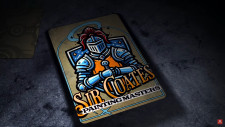
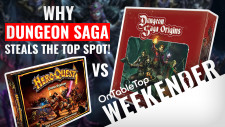



![TerrainFest 2024! Build Terrain With OnTableTop & Win A £300 Prize [Extended!]](https://images.beastsofwar.com/2024/10/TerrainFEST-2024-Social-Media-Post-Square-225-127.jpg)





